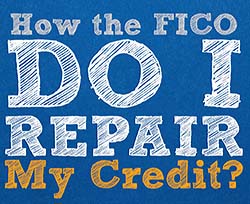 What is a FICO Score? Most credit bureau scores in the U.S. are calculated from software developed by Fair Isaac and Company. They are commonly referred to as FICO scores and include a rating based on information found in credit reports.
What is a FICO Score? Most credit bureau scores in the U.S. are calculated from software developed by Fair Isaac and Company. They are commonly referred to as FICO scores and include a rating based on information found in credit reports.
If you're planning to finance the purchase of any investment properties now or in the future, then knowing what make up your credit score and how to improve it are critical.
[Read more…]
 Credit scores can be the deciding factor for many major transactions. Lenders use credit scores to predict future behavior based on your past—if you have a low score because your cable bill is delinquent, then a lender won't think you're a good risk.
Credit scores can be the deciding factor for many major transactions. Lenders use credit scores to predict future behavior based on your past—if you have a low score because your cable bill is delinquent, then a lender won't think you're a good risk.